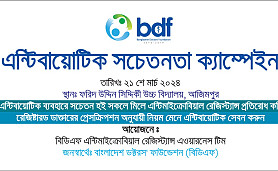Heart-healthy eating, along with regular exercise or physical activity, can lower your risk of heart disease and other CVD. Especially, food habit has a great impact on our heart's health. Heart-friendly eating habit can help prevent and manage high blood pressure, high cholesterol, or heart failure. If a person is worried about heart disease, one of the most important things he can do is to start eating a heart-healthy diet.
- Eat more fruits and vegetables: Eat a variety of fruits and vegetables prepared with very little cooking oil and no extra salt. Always remember that green is good, add more coloured vegetables in your diet. Dark green, deep orange and yellow fruits and vegetable are rich in fibre, and they help you feel full even if you eat a small amount. If you incorporate more vegetables and fruits into your diet and reduce the meat quantity, you will notice a change in your physical and mental health.
- Eat a variety of fibres or grain product daily: Include whole-grain foods such as cereals, oats, whole wheat bread and brown rice which contain lots of fibres and nutrients. All these help in reducing bad fat in the blood. A good rule of thumb you may follow is to 'avoid white' such as white rice, maida, white bread, cornbread, biscuits, pies and, buttered Popcorn in your diet.
- No extra salt: Though sodium (table salt) is good, less is best for health. Extra salt is a big risk factor for high blood pressure which, in turn, increases the risk of heart disease. Therefore, it is better to choose and prepare foods with little or no salt.
- Cut back on red meat and source of bad cholesterol (LDL): Avoid all kind of red meats (like beef, mutton, bacon, lamb), animal fat, prawn, egg-yolk etc. These fats and cholesterol-enriched indeed increase the blood cholesterol level, which is dangerous for the heart. Rather, chicken and fish can be preferred as a regular meal which meets the daily protein as well. Nevertheless, eating smoked and fried chicken can't be recommended.
- Eat fishes regularly: Eat small fishes as well as sea-fishes as much as you can. Oily sea-fishes like hilsa, salmon, tuna, mackerel, sardines are rich in Omega-3 fatty acid, which is a very good friend for your heart.
- Stay away from extra oil: It is better to use only 3-4 teaspoon of cooking oil per day, whatever the source, is recommended for healthy people. Choose foods with high amounts of healthy fats such as avocados, olives, nuts and seeds, and use healthy oils for cooking, for example, olive, canola, sunflower, peanut and soybean oil. These foods can help lower your cholesterol.
- Say no to sugar: Sugar is the most vulnerable silent killer for a person. Studies show consumption of sugar is even more dangerous than animal fat. Sometimes fat is not absorbed fully from the intestine. In contrast, sugar after fully being absorbed, the extra portion is converted into fat and deposited in the different organ as well as vessels that lead to atherosclerosis and heart disease.
- Don't forget to hydrate yourself: For a well and adult patient, the target should be set up to drink 6-8 glasses of water per day to maintain body hydration. If you find plain water boring, it is a good way to flavour water by adding lemon or mint. This combination is zero in calories, tasty as well as refreshing. However, the key to good heart health is drinking water. Optimum hydration allows your body to function properly and flush the toxins as well. It also helps with circulation, keeps your blood sugar levels in check, and reduces the risk of diabetes as well.
During the first few days, it may seem like there is a lot to adapt. There is nothing to be worried about, start with some small steps. Over time, making some small changes can add up to a big difference of your heart and health.
Source:
- Institute for Health Metrics and Evaluation 2018, Global Burden of Disease Study 2017 (GBD 2017) Results, Global Burden of Disease Collaborative Network, Seattle, Available from http://ghdx.healthdata.org/gbdresults-tool Collins CE, Burrows TL, Rollo ME.
- Dietary Patterns and Cardiovascular Disease Outcomes: an Evidence Check rapid review brokered by the Sax Institute for the National Heart Foundation of Australia, 2017 Ndanuko et al (2019)
- Animal sourced proteins (meat and poultry) and Cardiovascular Health: an evidence check brokered by the Sax Institute for the National Heart Foundation of Australia. 2019. Santos JA, Webster J, Land MA, Flood V, Chalmers J, Woodward M, Neal B, Petersen KS.
- Dietary salt intake in the Australian population. Public Health Nutrition. 2017 May:1-8. Australian Institute of Health and Welfare 2018.
- Nutrition across the life stages. Cat. no. PHE 227. Canberra: AIHW
- https://www.narayanahealth.org/blog/heart-healthy-diet-heres-what-the-cardiologists-prescribe/





